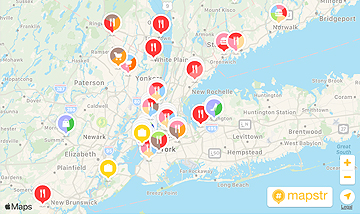Iran/nuclear issue
November 9, 2013
This morning we welcome Laurent Fabius, Minister of Foreign Affairs, who is in Geneva where the negotiations on the Iranian nuclear issue got under way 2 days ago. After years of stalemate and sanctions against Iran, is a solution perhaps emerging? Hello Laurent Fabius.
Hello
I imagine that you haven’t slept much. If I’m not mistaken 5 foreign ministers have travelled to Geneva: John Kerry is in Geneva, there are your British and German counterparts as well, and you’re expecting the Russian foreign minister this morning. Is that a good sign?
Listen, we want an agreement but right now there are major issues that haven’t yet been resolved. This is a significant problem because it concerns the entire Iranian nuclear issue, with implications for regional as well as global security. We want to reach an agreement. Basically, Iran has for years now been developing a nuclear program which we suspect is a military program, with a military purpose. We may fully accept that Iran is using civilian nuclear energy, but we cannot accept that it has the atomic bomb, because that would be extraordinarily dangerous for the entire region and more generally. So we are currently discussing that and there has been some progress. There was an initial text which we don’t accept because there are a few points – and I’ll come back to this – that are not acceptable. We’re currently discussing that, and we’ve made some progress but right now I can’t say that I’m sure that we can reach an agreement. So I will go and see Ms. Ashton who is negotiating, I will then see the Iranian minister of foreign affairs and then we’ll see how things are progressing in the morning and if we can make progress.
So France, as we’ve realized, doesn’t want a third-rate agreement, it’s a position that’s rather….
No. Of course we want an agreement because…
Yes, but you’re taking a rather hard line.
But we don’t want a fool’s bargain. And so there are a few points with respect to the initial text that we’re not satisfied with. I’m going to mention 2 points because I don’t want to get too technical. One of the points concerns the Arak reactor. There are several types of reactor, but that one produces a lot of plutonium and it represents a serious proliferation risk. So we don’t want things to continue during the negotiations because then we’d be faced with a fait accompli. And obviously the Iranians are wary but for us the Arak issue is an extremely serious one. The second point relates to what’s known as enrichment; there’s a whole stockpile of uranium enriched to 20%. 20% is high; that makes it possible to go to 90%, at 90% it becomes military grade. And so we ask the question: how can most of this stockpile enriched to 20% be brought back down toward 5%, which is much less dangerous. And what will we do in the future? We’re currently discussing all these issues. Again I hope we’ll reach an agreement, but if these questions aren’t resolved, it won’t be possible. And then there’s the other aspect, obviously the Iranians are saying: “If we make major concessions, the sanctions must then be eased,” and we’re not opposed to that but the easing of sanctions must be targeted and reversible, since our entire approach is based on saying, “here’s an agreement for the next 6 months, we’ll review the situation, we’ll monitor it all, and if everything’s satisfactory we’ll go further, toward something more definitive. So it’s very complex and important, we’re willing to try and reach an agreement but we don’t want a fool’s bargain.
But we also know that it’s not easy to lift – even partially lift – international sanctions. And for example…
No, it’s difficult.
Yes, it’s difficult. We know that Barack Obama for example needs the agreement of Congress, and he isn’t necessarily on the same wavelength as Congress, and that in order to lift the embargo the White House for example…
Yes, so….
So it’s very complicated.
Yes, you’re right. There are several types of sanctions, there are the American sanctions and the European sanctions. With respect to the American sanctions, in legal terms there are two categories. There are the sanctions which require the approval of Congress to lift them, and that could be difficult; and then there are the sanctions that the president could lift himself by using what’s known as a “waiver.” And in the draft agreement, obviously the Americans are leaning more toward the second example. For us Europeans, if we have to lift our sanctions, that would require a unanimous agreement and obviously that means that every country must be in agreement and therefore has a special responsibility.
The Iranians for their part are being strangled in economic terms, the situation for them is no longer tolerable, there is even perhaps… can we go as far as saying a risk of civil war in Iran?
I wouldn’t go that far, but it’s true that the sanctions have had a considerable impact. While at the beginning some people opposed them, obviously the Iranians oppose them very strongly. But that’s what explains the change in the Iranians’ position, and also perhaps explains the election of President Rouhani. President Rouhani, of all the candidates, was the most innovative, if we can use that expression. And if the Iranian people voted overwhelmingly for him, it’s because they hope that there will be changes, and notably with respect to the sanctions issue. So it’s a very, very powerful weapon and it won’t be possible to remove this weapon which has been effective if the other side doesn’t make major concessions. So that’s why it’s both difficult and very important.
And Israel, Benjamin Netanyahu is furious. I don’t know if he is opposed to any agreement, but in any case he’s certainly against reaching just any agreement. And Israel still reserves the right to defend itself.
Yes, exactly, the Israeli prime minister expressed his views and obviously we’re in contact. His position…
I believe that François Hollande is going to Israel very soon!
Yes, in around 10 days’ time.
So I imagine that they will address the issue!
Yes, of course. So the Israeli prime minister’s position is that there can’t be a two-stage agreement, since that could end up being a somewhat artificial operation; and basically he opposes this agreement. And of course you have to take Israel’s security concerns and those of all the countries in the region fully into consideration. So we support an agreement… we have to be clear, this agreement must be serious and credible. The initial draft made some progress, but not enough, so that’s what we’re discussing. And my position and that of President Hollande is to be open to an agreement but to be extremely firm.
Since we’re talking about President Hollande’s trip to Israel…
To Israel and to Palestine…
And will President Hollande make a speech at the Knesset, it’s not in theory planned but that could change.
Yes, I think he will.
[…] Another topic: the 4 French hostages in Syria - Didier François, Edouard Elias, Nicolas Hénin and Pierre Torres. As you said there are signs of life; do you know where they are, are they together…
We still have 7 compatriots being held hostage.
In total!
Fortunately we were able to bring back 4 hostages recently as you know. That was great but we still have 7 hostages. And so we have to continue our efforts that are both discreet - since if they’re not discreet then they’re counter –productive - and also effective. Regarding our hostages in Syria, there have indeed been – and I have spoken about his – recent signs of life, but regarding contacts, methods, etc….
You can’t say any more?
I apologize if….
No problem…
I’ve become convinced that that is key to success.
And there’s also the increase in violence against journalists. Obviously we’re thinking of Ghislaine Dupont and Claude Verlon.
Yes
We know that the investigation is making progress. France pledged to punish those responsible for these murders. What is the status of the manhunt? Have names been mentioned?
Yes, we shouldn’t take all the information in certain media at face value. But it’s true that progress has been made, with respect to the circumstances in which our compatriots were kidnapped and then murdered, the circumstances were absolutely despicable since they were slaughtered in the coldest way in a burst of machine gun fire. And then of course searches started to be carried out, many people are involved in that. We’re following up on leads, there are clues, notably with respect to those who ordered the attacks. AQIM has claimed responsibility…
Yes
It seems plausible, but regarding the people who are actually responsible, we’re going back over things. But as you know, when people have really been taken we can only talk about it when everything is clear and definite. Before that, it could be counter-productive. In any event, with respect to the journalists, I said that when a journalist is attacked and murdered, it’s a double crime, both against the individual and against the freedom of information, which they want to gag and destroy. So we have to be all the more intransigent, extremely firm and say to all of your journalist colleagues that they must continue their work, obviously while being very careful and vigilant. They can’t just go anywhere but it’s essential to provide information.
Thank you. And it’s obviously also vital to protect French nationals, that’s also the state’s duty.
Of course!
The two things go together.
Of course.
Thank you, Laurent Fabius, and good luck for the tough day you have ahead in Geneva. Goodbye.
Thank you, goodbye.














